What is an Intensive Outpatient Program? How Does it Differ from Other Treatment Programs in Manteca, California?
An intensive outpatient program, often referred to as IOP, is a treatment model designed for individuals who need more support than traditional outpatient therapy provides but who do not require the 24-hour supervision of an inpatient or residential facility. This level of care allows people to continue living at home while receiving structured therapy and clinical support several times per week.
IOP can be an ideal fit for individuals who are working, attending school, or caring for family members. Instead of stepping away from daily life, participants can engage in treatment during scheduled sessions, usually held three to five days per week for a few hours at a time. This creates a balance between active treatment and real-world responsibilities, which helps many people apply what they are learning in therapy directly to their everyday experiences.
In Manteca, individuals looking for help with substance use or mental health concerns may find that IOP is a practical and effective option. It offers a level of care that is more intensive than weekly outpatient therapy but less restrictive than inpatient treatment. This makes it suitable for those who are beginning their recovery journey, as well as those who are stepping down from a higher level of care.
Most programs include a combination of therapeutic services, such as group therapy, individual counseling, family involvement, medication management, and education on relapse prevention. These services are delivered in a way that encourages progress while respecting the individual’s autonomy and ability to manage their own schedule. The consistency of IOP helps build momentum in recovery, while the flexibility allows people to remain connected to their homes, workplaces, and communities.
Whether someone is managing addiction, depression, anxiety, trauma, or a combination of mental health challenges, intensive outpatient care can provide meaningful structure, support, and accountability without requiring full-time admission to a treatment center.

How Do Intensive Outpatient Programs (IOPs) Work
Intensive outpatient programs are designed to provide structured support without removing individuals from their daily lives. The process usually begins with a comprehensive intake assessment. This initial evaluation helps the clinical team understand each person’s history, current challenges, and goals for treatment. From there, a personalized care plan is developed to guide the course of treatment.
IOPs typically meet three to five times per week, with each session lasting around three hours. The schedule may vary depending on the program and the individual’s needs. Some people attend morning or evening sessions to accommodate work or family obligations, while others participate during the day if their schedules allow. In many cases, virtual options are also available, which increases access to care for those with transportation issues or who prefer the convenience of receiving services from home.
The foundation of most IOPs is group therapy. Group sessions create a space where individuals can connect with others facing similar struggles, practice communication skills, and build a sense of community. These sessions are often led by licensed therapists and may focus on topics such as coping skills, emotional regulation, relapse prevention, stress management, or trauma recovery.
In addition to group work, participants may engage in individual counseling, family therapy, psychiatric consultations, and medication management. Some programs also offer holistic services like mindfulness training, yoga, or nutritional education to support overall well-being. The goal is to treat the whole person, not just the symptoms of addiction or mental illness.
As individuals move through the program, their progress is monitored regularly. Treatment plans are updated as needed to reflect new goals or address challenges that arise. Some people may gradually reduce the number of sessions they attend as they gain stability and confidence in their recovery.
IOP provides a strong middle ground for those who need consistent care but also want to stay engaged in their lives outside of treatment. It allows people to take recovery seriously while practicing the skills they are learning in real time, which can lead to more sustainable long-term outcomes.

Who is a Good Candidate for an Intensive Outpatient Program (IOP) in Manteca, California?
Intensive outpatient programs are designed to meet the needs of people at different stages of recovery. Some individuals enter IOP as their first formal step toward healing, while others use it as a transition after completing residential treatment or a partial hospitalization program. The flexibility of this level of care allows it to serve many purposes, depending on where someone is in their recovery process.
IOP can be a strong option for someone who has completed detox or inpatient care but still needs regular support. It helps ease the shift from a highly structured setting back into the responsibilities and stressors of daily life. For many, this step-down approach reduces the risk of relapse and reinforces the progress they have already made.
Others may enter IOP without having attended a higher level of care. This is often the case for individuals with mild to moderate symptoms of addiction or mental health disorders who are looking for a structured environment but do not need round-the-clock supervision. IOP provides a balance between autonomy and accountability, making it possible to receive meaningful help while continuing to live at home and participate in everyday life.
Good candidates for IOP generally have a stable and safe living situation. Having a supportive home environment can make a significant difference in the success of outpatient care. Friends and family who understand the recovery process and respect the individual’s boundaries can provide encouragement and structure that reinforce treatment goals.
IOP is also well suited for parents, working professionals, students, and caregivers who cannot commit to residential treatment but still want access to frequent therapy and clinical services. The flexibility of morning, evening, or virtual sessions makes it possible to prioritize recovery without stepping away from work or family responsibilities.
Some people benefit from IOP because of the opportunity to apply what they learn immediately. Rather than waiting to re-enter the world after treatment, they can test out new coping strategies, communication tools, and relapse prevention techniques in real-life situations while receiving ongoing support from clinicians and peers.
Ultimately, IOP is most appropriate for individuals who are motivated to change, capable of participating in a structured program, and ready to take an active role in their healing. During the admissions process, treatment providers typically conduct a detailed assessment to determine if this level of care is the right fit based on a person’s history, symptoms, and overall goals.
Benefits of Intensive Outpatient Programs (IOPs) in Manteca, California
One of the biggest advantages of an intensive outpatient program is the ability to get consistent support without putting your life on hold. IOP offers the structure and accountability of regular therapy, but with the flexibility to continue managing work, school, or family responsibilities.
Here are some of the reasons people choose this level of care:
- You can stay connected to your daily life. IOP lets you live at home, attend school or work, and care for your family while still receiving professional treatment several days a week.
- It’s more affordable than inpatient rehab. Without the cost of overnight stays, IOP is often a more budget-friendly option for people who need support but don’t require full-time care.
- You’ll have access to real-world practice. As you learn coping skills, relapse prevention strategies, and communication tools in therapy, you’ll be able to use them right away in your everyday life.
- Support doesn’t stop when the session ends. Group therapy and peer connections help create a recovery network that stays with you long after treatment is over.
- Your privacy is respected. Many people don’t want to explain long absences to employers or peers. With IOP, you can keep up with your routine while getting help on your own time.
- Family can be part of the process. When programs offer family sessions or education, your loved ones can learn how to support your recovery in healthy, meaningful ways.
IOP meets people where they are. Whether you’re stepping down from inpatient treatment or starting care for the first time, this level of support helps you move forward while staying grounded in your life.

Intensive Outpatient Treatment for Addiction and/or Mental Health Issues in Manteca, California
Many individuals seeking treatment are living with both substance use issues and mental health challenges. This combination, often referred to as a dual diagnosis or co-occurring disorder, requires a comprehensive approach that addresses both conditions at the same time. Intensive outpatient programs are well-suited for this type of care, offering flexibility without sacrificing clinical depth.
Treatment typically includes a mix of individual therapy, group sessions, and psychiatric support. For those dealing with anxiety, depression, trauma, or PTSD, therapy sessions may focus on developing emotional regulation skills, building healthy coping strategies, and understanding how mental health symptoms interact with addiction. Providers may use evidence-based methods such as cognitive behavioral therapy, dialectical behavior therapy, or trauma-focused techniques to help individuals work through underlying issues.
Medication management is another important part of treatment for many people. Those who benefit from antidepressants, mood stabilizers, or other psychiatric medications can receive support from clinicians who understand how to integrate medication into the broader recovery process. Education around the use of these medications helps individuals understand their purpose, manage side effects, and stay engaged in treatment.
Outpatient care also allows people to engage in therapy without stepping away from their everyday lives. This can help them apply what they’re learning immediately, whether that’s navigating relationships, managing stress at work, or handling difficult emotions in healthier ways. Over time, individuals build the confidence and skills needed to manage both their mental health and their sobriety, while remaining connected to their community and support system.
Rather than treating addiction or mental health symptoms in isolation, intensive outpatient care focuses on the full picture. This integrated model helps people stabilize, gain clarity, and take real steps toward lasting recovery—both emotionally and behaviorally.
Frequently Asked Questions About IOP in Manteca, California
No. While many people join IOP after completing detox or residential care, it can also be a starting point for those who need structured support but don’t require 24/7 supervision. It’s a flexible option for individuals at different stages of recovery.
Yes. Many IOPs are designed to treat co-occurring conditions like depression, anxiety, or trauma alongside substance use. This kind of integrated care helps people make progress in both areas together, which is often more effective than addressing one issue at a time.
Yes. Virtual IOP options are available for individuals who need treatment but prefer the convenience of participating from home. This can make care more accessible, especially if transportation, childcare, or work schedules are barriers.
If IOP is not the right fit, there are other options available, such as partial hospitalization programs (PHP) or inpatient treatment. A clinical assessment will help determine which level of care best meets your needs at this time.
The length of the program depends on individual progress and needs. Many people participate for four to eight weeks, though some stay longer if they benefit from continued structure and support. Your treatment plan can be adjusted as you go.
Yes. One of the advantages of IOP is its flexibility. Sessions are often scheduled in the mornings, evenings, or virtually, so you can continue working or caring for your family while staying committed to your recovery.
Find an Intensive Outpatient Program in Manteca, California
Intensive outpatient programs offer more than just symptom management—they help individuals rebuild their lives with structure, support, and flexibility. Through a combination of therapy, medication management, and real-world application, IOP helps people stay connected to daily life while making steady progress in recovery.
Whether you’re managing addiction, mental health challenges, or both, this level of care creates space for personal growth and lasting change. Treatment is personalized, with support from professionals who understand what it takes to move forward.
If you’re considering IOP in Manteca or nearby, our team is here to help. Call (833) 530-0291 to learn more.


